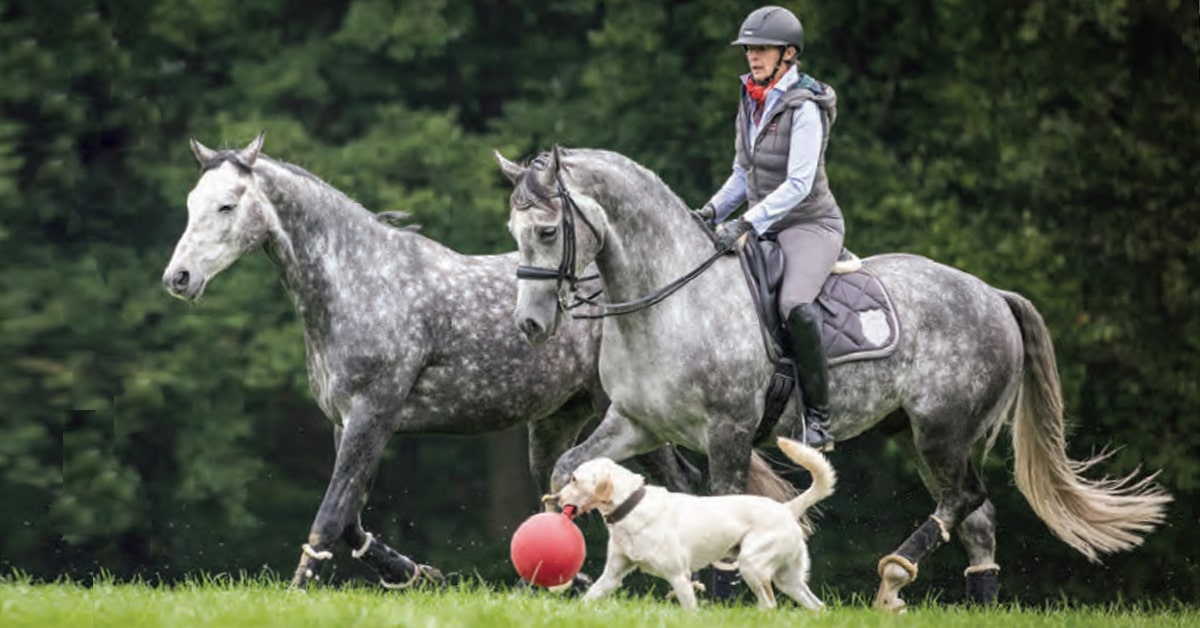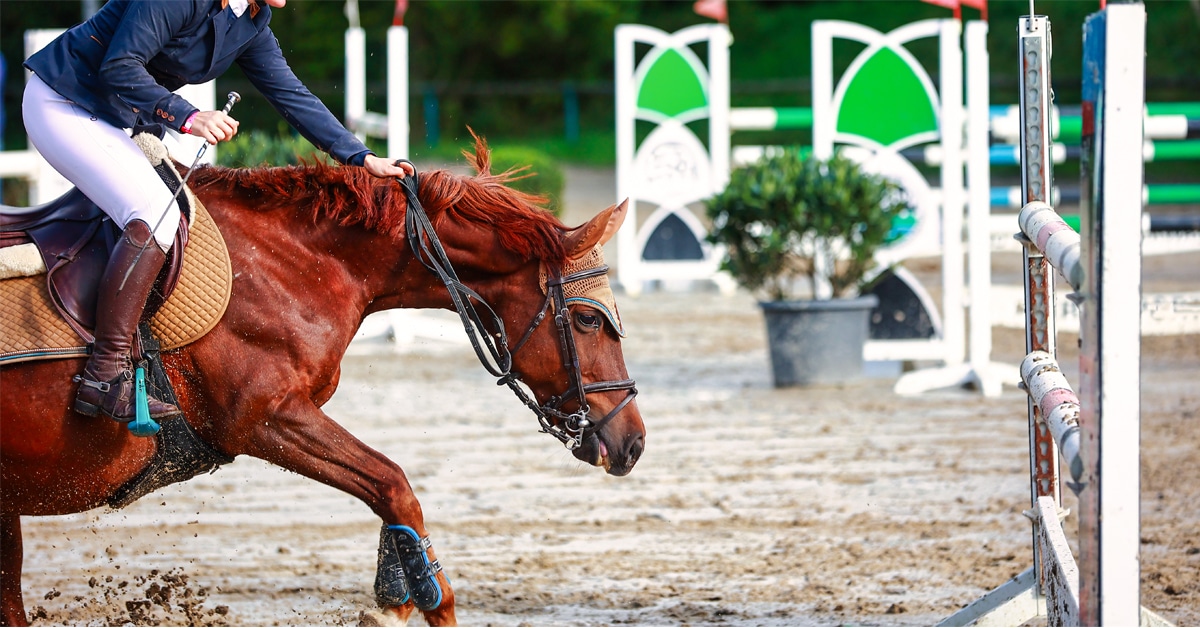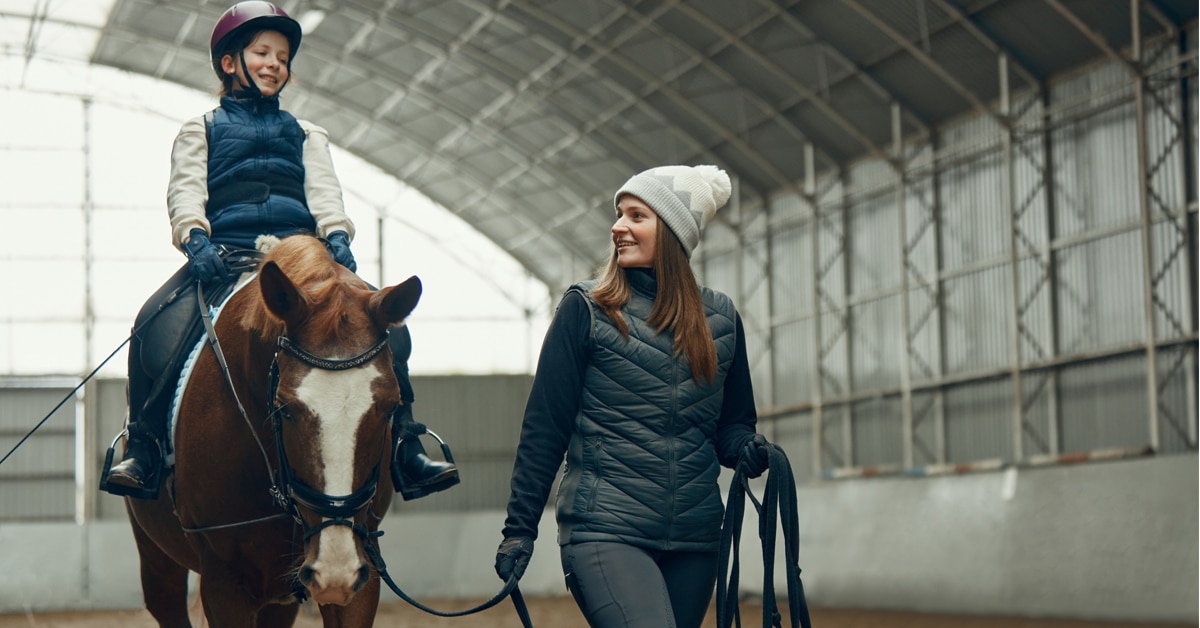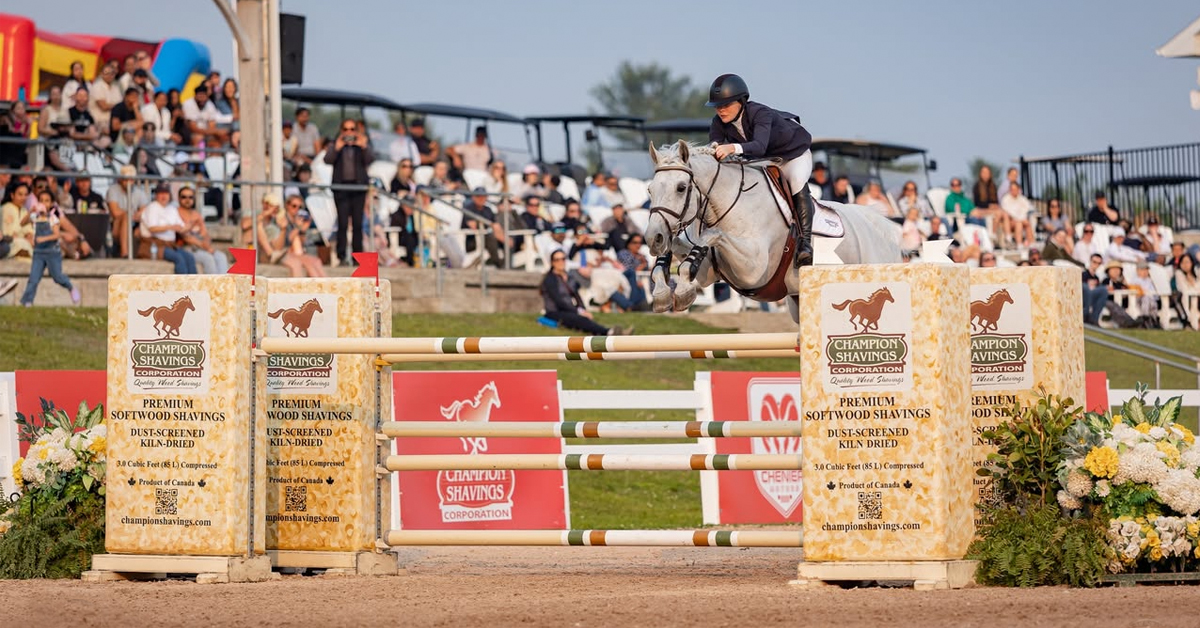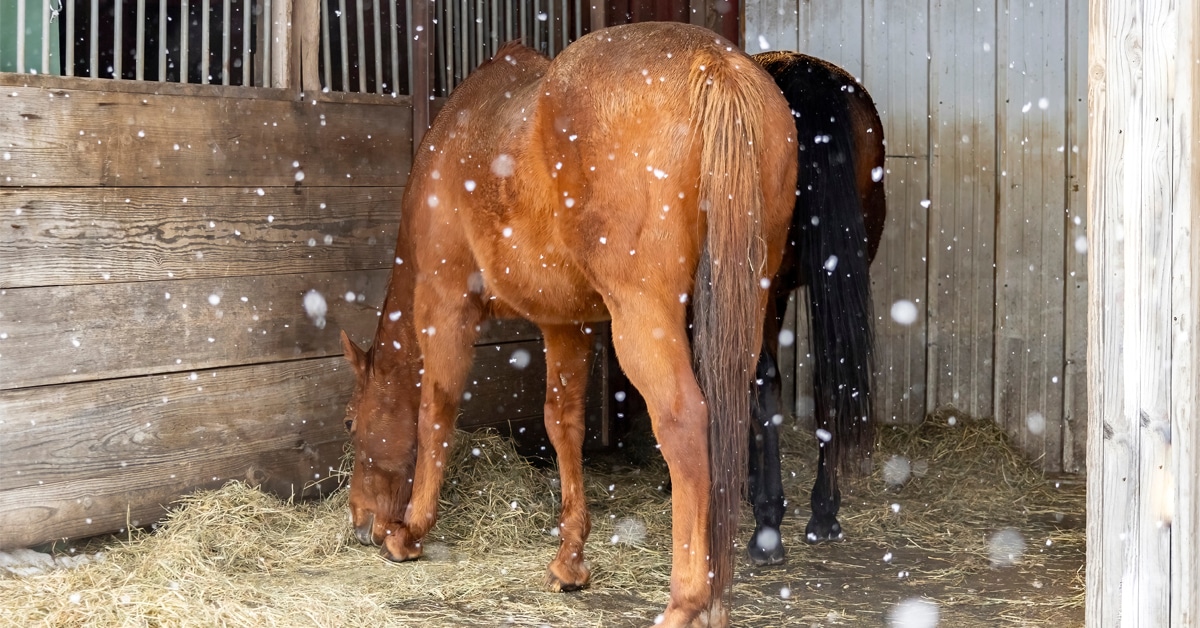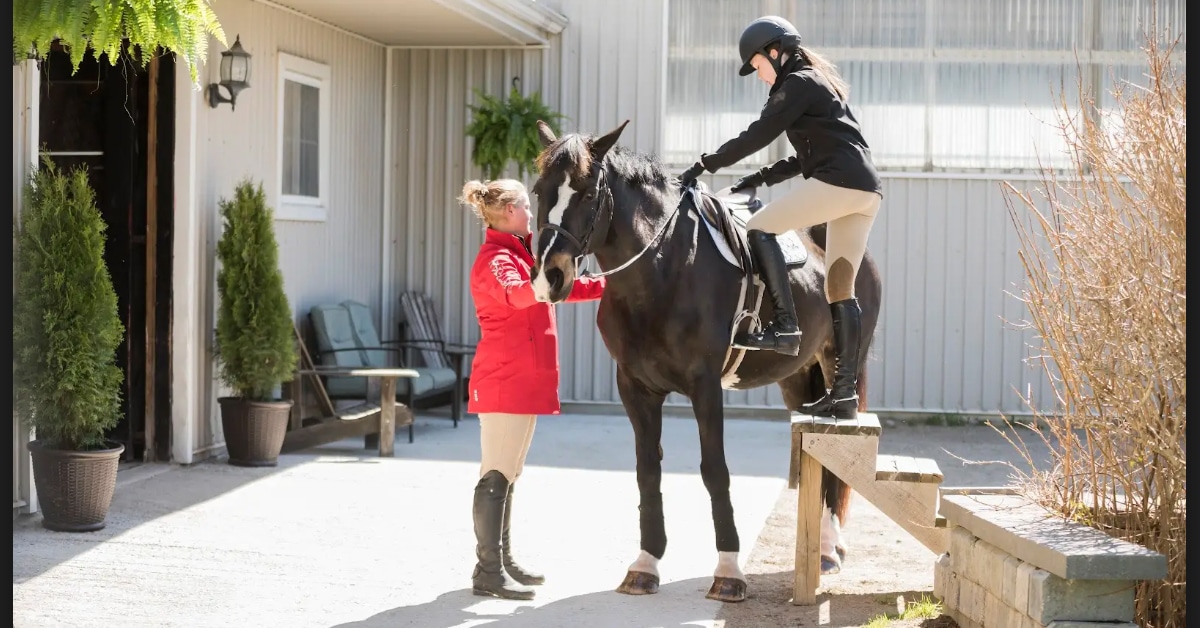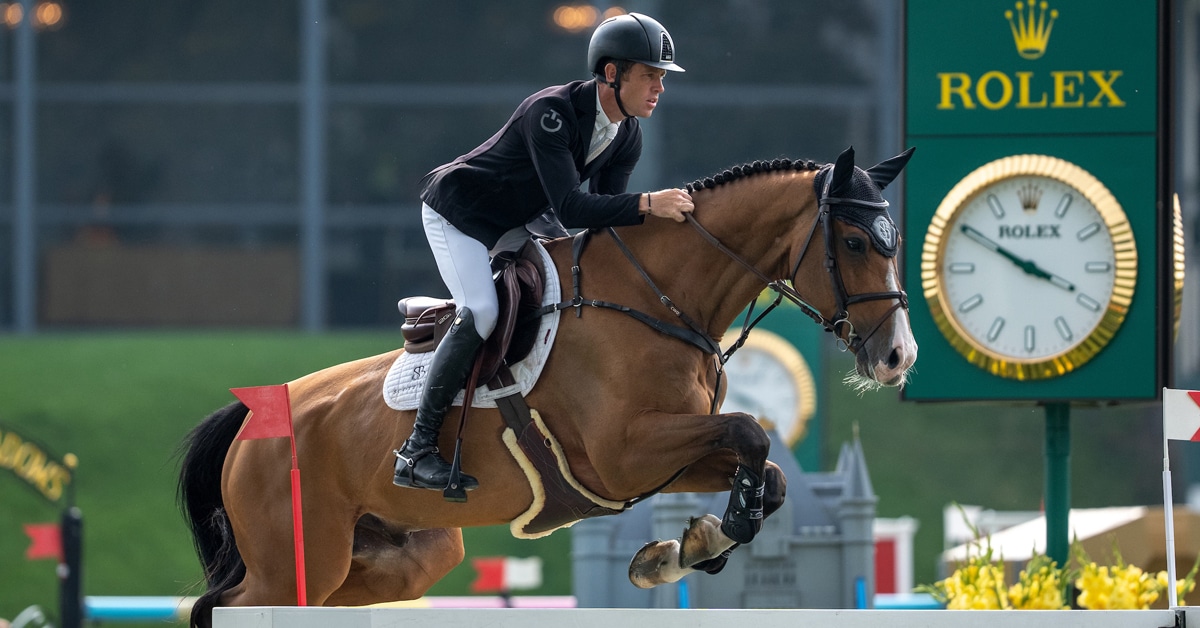She was on a relatively new partner, a Canadian Warmblood mare named Gitane D’Aubrac that she had leased only the winter before; she had recently been reclassified as an FEI Para-Dressage Grade II rider, down from her previous classification as a more able-bodied Grade III; and she had been working with her personal coach, Chelsea Van Lierde, only since March of 2010. With 12th-place finishes in both the Grade II Individual Championship and Freestyle competitions, Sharon showed the world that she was very much up to the challenge. She attributes much of her success to Chelsea, a coach who is so much more than just someone who stands in the ring teaching.
Sharon suffers from Charcot-Marie-Tooth Disease (CMT), a debilitating neurological disorder that sounds similar to multiple sclerosis, but is actually more like muscular dystrophy. “I was born with it, but was diagnosed at age eight,” she explains. “It causes deterioration of the nerves, which then causes atrophy of the muscles.” Sharon’s strength and motor coordination are affected, and she has paralysis in her arms and legs, which means she has trouble feeling the horse’s movement. “Upper body control is a big problem, and I can’t apply my legs. The faster we go, the worse it gets.”
Because CMT is a progressive disease, Sharon was reclassified and forced to re-qualify as a Grade II rider after she had already qualified for WEG as a Grade III rider. Chelsea was closely involved with every element of Sharon’s time at the barn – from tacking up the horse for her, to helping her get on, to training the horse at home and warming her up at competitions.
Sharon is 36 years old, and Chelsea is seven years her junior, but Sharon says her Belgian-born coach shows maturity beyond her years. “You would never think Chelsea is only 29, from her way of thinking, her professionalism and her way of dealing with people. She is a very positive, encouraging person.” Sharon admits she tends to be negative about her riding, focusing on what is wrong with her performance. Chelsea provides a psychological counter-balance. “She sees the positive side and keeps me in perspective. When I’m nervous I often don’t outwardly show it, but Chelsea recognizes it and knows how to handle it.”
Chelsea had no previous experience with physically disabled riders before she began working with Sharon, who has no doubt that Chelsea was a major contributor to her WEG results. “She made a huge difference with my horse in the months before WEG, and without her with me at WEG I don’t think I would have been able to perform as well.” The Canadian Para-Dressage Team Coach, Andrea Taylor, is based in BC and had few opportunities to work with Sharon, a Quebec native who lives in Pointe- Claire, QC. “Andrea put a lot of faith in Chelsea,” says Sharon. “She was my personal assistant at WEG. At training camp she warmed up my horse. She groomed for me and coached me at WEG.”
Sharon finds it remarkable that after nearly three weeks of being together with her coach 24 hours a day in Kentucky, there was never a moment of friction between the two of them. “We never got mad or frustrated with each other. I’ve never had that kind of relationship with a coach before.” Even at home, where Sharon spends upwards of three hours at the barn after her day job as a high school science teacher is over, Chelsea has been a constant source of support and encouragement.
Gitane D’Aubrac was returned to her owners immediately following WEG, and Sharon began a search for her next mount – with Chelsea at her side. Last winter, Sharon purchased a six-year-old Canadian Warmblood mare named Elektra II, just two days before undergoing one of many surgeries to mitigate the physiological damage of CMT. Sharon has ridden Elektra at the walk and trot, but the mare’s exceptional movement has proven to be her newest challenge. “I never needed a handle bar before, but I need it now!” While Sharon works on getting a saddle that gives her the support she needs to be both safe and effective, Chelsea is training Elektra and competing with her at training level.
As Sharon grapples with the disease that is gradually sapping her of her physical strength, she finds daily reward in riding, and constant inspiration from Chelsea. “Life and everyone in it inspire me, but the coach is a key component in my success as a rider, especially as a para rider. Chelsea is one of those people who wants those around her to be successful in everything they do, be it in riding or in life.”
The Latest
